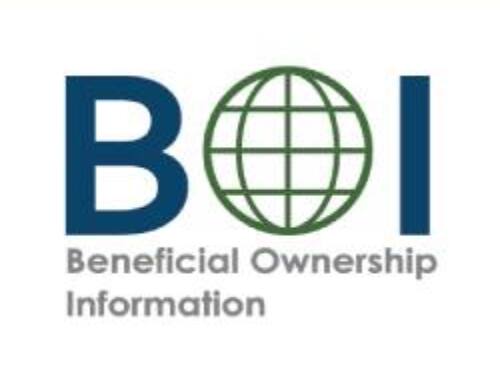By W. Verne McGough, Jr. JD, LLM, Merline & Meacham, PA
This article originally appeared in the Winter 2024 issue of the South Carolina CPA Report
As 2024 ushers in a host of new legal and compliance challenges, few carry as many far-reaching impacts as the Corporate Transparency Act (“CTA”). Enacted in 2021 with a January 2024 effective date, the CTA mandates detailed reporting on the ultimate individual owners and persons in control of corporations, LLCs, LPs, and most other state-registered entities.
While the policy aims of increasing transparency and fighting financial crimes are laudable, the ripple effects stretch well beyond merely filing reports. In a recent continuing education course for accountants on CTA issues, the complexity prompted many attendee questions—not to mention some persuasive arguments for advising clients to seek legal assistance.
Who Must File and What is Required to be Filed?
The CTA casts an exceptionally wide net, covering domestic and foreign-registered entities. Exemptions do exist for certain regulated companies, nonprofits, large operating businesses which meet employee and revenue minimums, and inactive companies. Notwithstanding the exemptions, most typical client entities will need to file a beneficial ownership information (“BOI”) report.
BOI reports require identifying information for the beneficial owners and company applicants, including copies of government issued identification documents for these individuals. The term “beneficial owner” reaches not just those with direct equity shares amounting to 25% or more ownership, but also individuals exercising “substantial control” over the entity. “Company applicants” include anyone signing or directing the filing of organizational documents, which will include many CPAs. Company applicant information is only required for entities formed beginning in 2024.
Early Prep Critical as Procedures Lag
With less than 3 months until initial reports come due, Treasury is still fine-tuning filing procedures and the electronic filing portal. An entity formed in 2024 must file its initial BOI report within 90 days following receipt of notice of the entity’s formation. Entities filed prior to 2024 must file a BOI report by January 1, 2025. Entities can get started now by cataloging ownership details and documenting exemption rationales. Careful records matter as inaccurate data or conclusions about qualification for exemptions may prompt penalties.
The question emerging most prominently is who actually handles reporting. Lawyers are largely inclined not to handle reporting due to the substantial costs and data responsiveness needs. This puts the onus on CPAs and entity owners to self-file or use third-party servicers. For clients lacking business management infrastructure, the task may prove daunting.
Practice Changes Needed All Around
Firms creating new entities in 2024 and beyond should plan to incorporate CTA compliance into standard operating procedures immediately. From intake forms to engagement letters, ownership reporting responsibilities need clear communication. Develop reminder systems, decide whether to recommend FinCEN ID numbers to ease future changes, and take steps ensuring client cooperation down the road.
Even service providers not forming companies should evaluate notification policies so existing clients understand forthcoming obligations. Simple awareness may fall short of the desired standard given penalties which will be assessed against clients who fail to comply – consider requesting that your clients sign consents following your notification.
Venture Beyond Familiar Ground Cautiously
CPAs and other authorized nonlawyer professionals navigating the complex beneficial ownership analyses mandated could stray into legally precarious territory. Well-settled law provides that selecting and tailoring documents constitutes the practice of law, as does advising clients on rights, remedies, and regulations. Specifically, the determination of whether an entity qualifies for an exemption or whether a person is a beneficial owner (particularly in complex ownership structures) may be legal advice. Tread carefully here or suggest clients consult an attorney when CTA interpretations grow murky.
The Road Ahead
While the CTA adds heavy administrative burdens plus the menace of enforcement actions, knowledge brings power. Advisors will bring value to clients by attacking compliance methodically to offset risk, which can free clients to focus on core operations. There is no sugarcoating the difficult transition ahead for practitioners and businesses alike when it comes to birth of a new era in corporate transparency.

